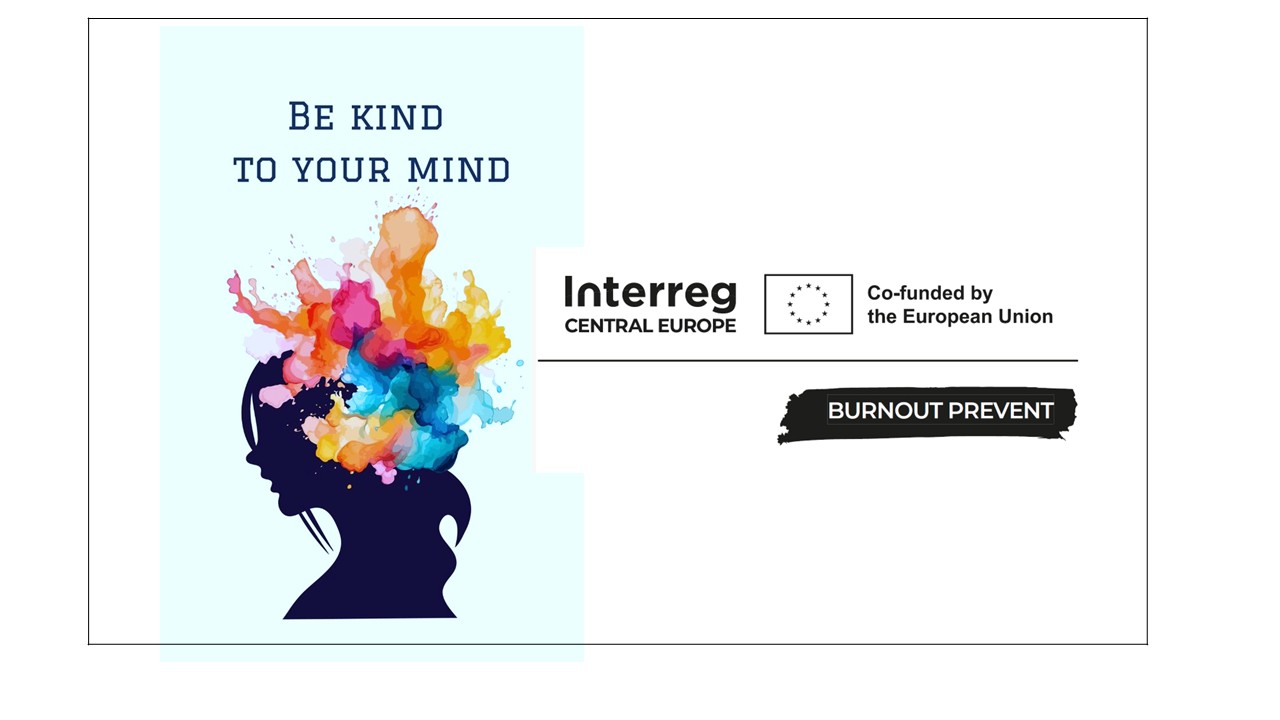Every third Saturday in July, we celebrate International Self-Compassion Day, but why should we practice it? And how does it contribute to your mental health?
SELF-COMPASSION is the ability to treat yourself with kindness and understanding in difficult moments, instead of criticising or condemning yourself. It is an approach that helps you build a healthy relationship with yourself, especially in the face of setbacks, mistakes and challenges that are an inevitable part of life. It consists of three basic elements that together form a supportive approach:
1. KINDNESS TOWARDS ONESELF – Instead of judging oneself for mistakes, we treat ourselves with the same care that we would show to a friend in a similar situation. We try not to judge ourselves or feel bad about experiencing difficulties.
2. UNIVERSALITY OF HUMAN EXPERIENCE – recognising that difficulties are part of life and that we are not alone in them. Everyone experiences challenges, struggles and failures, which helps us feel less isolated.
3. MINDFULNESS – being aware of your emotions without suppressing or over-identifying with them. This allows you to accept your feelings and thoughts without excessive criticism.
Scientists have established that excessive self-criticism signals to the body that you are in a “threat defence situation,” which raises cortisol and adrenaline levels; therefore, we need more productive practices, such as self-compassion.
1. How can you practice self-compassion daily?
Be supportive of yourself.
o Instead of thinking, “I’m no good, I can’t do this,” try: “This is a difficult moment, everyone has bad days. I need to rest.”
o Accept your feelings without judging them.
o Talk to yourself with care and tenderness, as if you were talking to someone very close to you.
Notice your needs.
o Don’t ignore your tiredness and stress – stop, ask yourself what you really need.
o Respond to your body’s signals and emotions with care.
Formulate and repeat supportive thoughts
o “I am good enough, even when not everything goes according to plan.”
o “I deserve to rest and regenerate.”
o “What I feel is natural. I am not alone in this.”
o “I have the right to be gentle with myself”
Self-compassion helps to deal with burnout and stress. Instead of self-criticism, be gentle; instead of ignoring your needs, be mindful. By taking these small steps, you can enhance your quality of life and regain inner balance.
2. Are you familiar with the difference between Self-esteem and Self-Compassion? We invite you to listen to the TEDx Talk of dr. Kristin Neff, a pioneer in the study of self-compassion: https://youtu.be/IvtZBUSplr4
